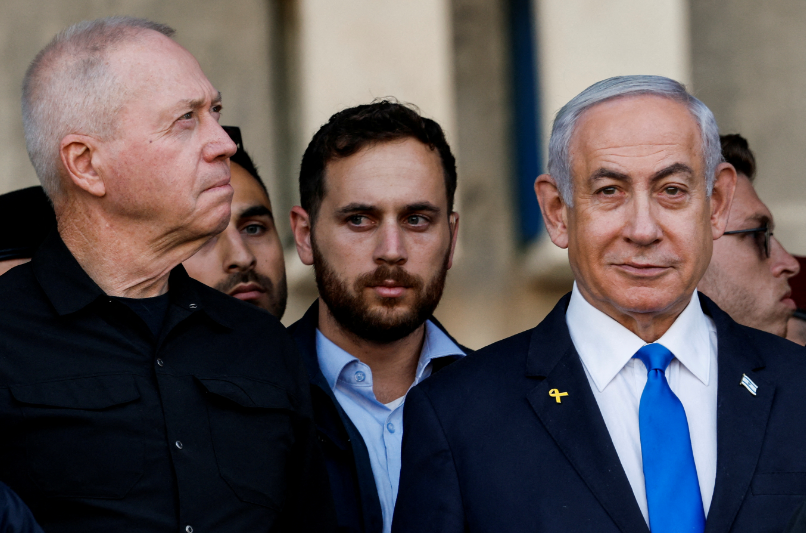Israel is currently experiencing more diplomatic isolation than ever before, as expressed by a former senior government official in an interview. Prime Minister Benjamin Netanyahu is allegedly prioritizing a war driven by personal political gain rather than national interests.
Eran Etzion, who previously served as deputy head of Israel’s National Security Council, stated, “We are now in an era of unprecedented diplomatic isolation, facing significant sanctions on individuals and organizations linked to settlements and violence. Key Western nations, including Italy, Canada, and the UK, have imposed arms embargoes.”
Etzion urged a clear distinction between the Israeli government and its citizens, saying, “The Netanyahu regime is acting against the country’s security and broader interests, and this is something most Israelis do not support.”
The current conflict intensified after Hamas’s attacks on October 7, which killed approximately 1,200 people and resulted in 251 hostages being taken to Gaza. Since the onset of the conflict, more than 43,000 Palestinians have died, with at least 100,000 injured, as much of the area’s infrastructure has been severely damaged.
In September, the UK announced it would suspend 30 arms export licenses to Israel due to concerns over compliance with international humanitarian law. Canada also suspended around 30 permits for arms shipments, while Italy blocked various shipments.
Furthermore, both the US and EU have placed new sanctions on extremist settlers living in the occupied West Bank, who have conducted attacks against Palestinians.
Etzion’s insights come as Israel faces growing criticism from longtime allies, including the United States, regarding its military actions in Gaza. Recently, the US described an attack on a residential building in northern Gaza, which killed at least 93 people, as “horrifying.” Etzion noted, “The situation is horrible and needs to stop.” He served as head of policy planning at Israel’s Foreign Ministry and left public service in 2014 after a 22-year career. He now writes on policy for various think tanks.
Etzion argued that countries in the region should clearly state their willingness to normalize relations with Israel depends on replacing Netanyahu. Saudi Arabia has consistently said it would not normalize relations with Israel unless a Palestinian state is established.
Netanyahu has opposed such initiatives, consistently approving the expansion of settlements in the West Bank, which critics claim violate international law and hinder Palestinian statehood.
“There are distinct interests at play,” he explained. “Israel’s national interests and the personal interests of Netanyahu and his regime do not align; they contradict each other completely. The stakes are high, and there should be a strong message about this from regional leaders.”
Etzion has experience in peace negotiations with the PLO, Jordan, and Syria during the 1990s and was involved in the Gaza disengagement plan in 2005. He continues to participate in various informal dialogues aimed at resolving the ongoing conflict.
He also mentioned that there are divisions within the Israeli government regarding the continuation of the war. The defense establishment is urging the government to take advantage of recent military successes to pursue a ceasefire and a deal for the release of hostages. However, many believe Netanyahu is uninterested in making a deal that would end the fighting.
“For Netanyahu, this war is essential to maintain his power, to solidify an autocratic regime, and to eliminate opposition, free media, and democratic institutions,” he explained.
An end to the conflict could bring renewed scrutiny of Netanyahu’s government, especially regarding the efforts by far-right allies to implement a judicial overhaul, which would have given the government control over the Supreme Court. These proposed changes faced strong resistance and led to significant protests across Israel. If the fighting stops, it could open space for criticism of Netanyahu’s handling of the war and whether he could have done more to prevent the October 7 attacks.
Polls conducted in September indicated that more Israelis would prefer former Prime Minister Naftali Bennett over Netanyahu. However, Netanyahu’s approval ratings have seen a slight uptick due to recent actions against Iran and Hezbollah, including the assassination of key leaders.
The Israeli Prime Minister has stated that returning the hostages remains a primary goal of the war, and the military is focused on preventing any recurrence of the October 7 attacks.
The future governance of Gaza and resolving the broader Israeli-Palestinian conflict will depend on new leadership in both Israel and the West Bank, according to Etzion. Current Palestinian President Mahmoud Abbas has an approval rating of less than 20%, with many Palestinians wanting him to resign.
“He [Abbas] should have been replaced a long time ago, just like Netanyahu. We need a fresh start urgently,” Etzion stated.
The outcome of the upcoming US elections on November 5 will significantly impact the ongoing Israel-Hamas-Hezbollah conflict, he believes. A win for former President Donald Trump could lead to closer cooperation with Russia and an agreement that could help end the conflict.
For Russian President Vladimir Putin, this would involve “protecting Iran and its proxies.” For Trump, achieving a quick resolution could allow him to claim success in the region, showcasing it as a notable achievement during his presidency, while potentially sacrificing Netanyahu in the process.
If Vice President Kamala Harris and the Democrats win, he anticipates a continuation of existing policies. Etzion criticized President Biden’s administration for not effectively pushing Netanyahu toward agreeing to a ceasefire and hostage release deal put forward earlier this year.
“It’s in [Harris’s] interest to act quickly. To achieve success, she and her team must be much more aggressive and assertive in dealing with Netanyahu,” he concluded.









